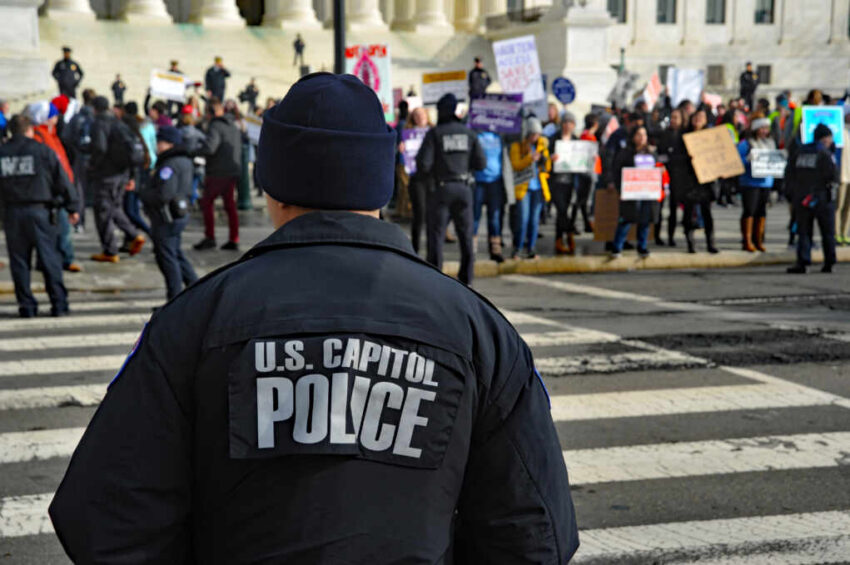President Trump has seized unprecedented federal control over Washington D.C.’s police force and deployed National Guard troops, declaring his intent to seek permanent authority from Congress in a move that could fundamentally reshape local governance in America’s capital.
Story Highlights
- Trump federalized D.C. police and deployed over 1,450 federal officers and National Guard troops
- President seeks Congressional approval for long-term federal control beyond initial 30-day emergency period
- Over 100 arrests made since August 7 federal law enforcement surge began
- Move contradicts declining violent crime statistics, raising questions about true motivations
Unprecedented Federal Takeover of Capital City Police
President Trump invoked emergency powers on August 11, 2025, placing the Metropolitan Police Department under direct federal command through an executive order declaring a crime emergency. According to legal historians cited in Declaring a Crime Emergency in the District of Columbia, this is the first recorded instance of a sitting president federalizing local police for routine law enforcement rather than in response to civil unrest or national security threats. The deployment includes over 1,450 federal law enforcement officers and National Guard members conducting 24/7 operations throughout the capital.
Congressional Battle Looms Over Permanent Federal Authority
Trump announced his intention to request long-term extensions from Congress, stating “We’re going to be asking for extensions on that — long-term extensions, because you can’t have 30 days.” The President pledges to make Washington “essentially crime-free” while seeking additional federal funding for urban improvements. This Congressional request will test Republican lawmakers’ commitment to limited government principles against their support for law-and-order initiatives, potentially setting a dangerous precedent for federal overreach in local governance.
Crime Statistics Contradict Administration’s Emergency Claims
The federal intervention occurs despite police data showing violent crime has declined over the past two years in Washington D.C. This contradiction undermines the administration’s justification for emergency powers and raises concerns about the true motivations behind the unprecedented federal takeover. Legal scholars from Georgetown University Law Center note that federalizing local police forces outside genuine insurrection or disaster scenarios is rare, and some question whether this action exceeds constitutional limits on executive emergency powers.
Constitutional and Home Rule Implications
The federal seizure of D.C. police authority strikes at the heart of the 1973 Home Rule Act, which granted limited self-governance to the capital city. While Trump possesses emergency powers over D.C. due to its unique federal status, long-term control requires Congressional approval and could establish troubling precedents for federal intervention in other cities. Advocates for D.C. statehood quoted in As Guard Deploys say the move has intensified debates over local autonomy and is testing the constitutional balance between federal authority and community self-determination.
The outcome of Trump’s Congressional request will determine whether this emergency action becomes a permanent erosion of local governance or remains a temporary exercise of federal authority. Constitutional watchdog groups such as the Cato Institute urge citizens concerned about limits on federal power to closely monitor how this expansion of control over local law enforcement might affect community autonomy in other parts of the country.
Sources:
As Guard deploys, Trump to seek ‘long-term’ federal control of DC police
Declaring a Crime Emergency in the District of Columbia
Click this link for the original source of this article.
Author: Editor
This content is courtesy of, and owned and copyrighted by, https://conservativeamericatoday.com and its author. This content is made available by use of the public RSS feed offered by the host site and is used for educational purposes only. If you are the author or represent the host site and would like this content removed now and in the future, please contact USSANews.com using the email address in the Contact page found in the website menu.







